Top Stories

Healthy oceans should be a global priority
Though the SDG-14 aims to achieve 'Life Below Water: Sustainable Fishery and Preservation of Oceanic Biodiversity', this is well beyond what is being done currently. At the moment, India is simply using the oceanic energy resources.
Read more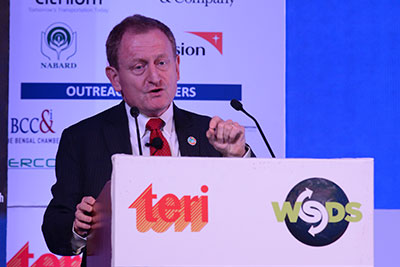
Meeting the climate finance gap for a 1.5 C world
If we continue on a business-as-usual trajectory, GHG emissions will continue on a steady upward trajectory. The intervention to limit the world's global warming to 1.5 degree C?
Read more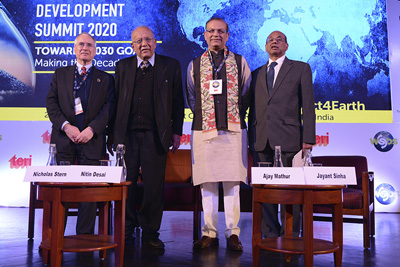
Yes, we can
India’s overarching development goal is to deliver sustainable prosperity to its people; to help them lead peaceful, fulfilling lives in a clean and green environment. Achieving this goal requires that the Indian economy be simultaneously transformed along two different dimensions.
Read more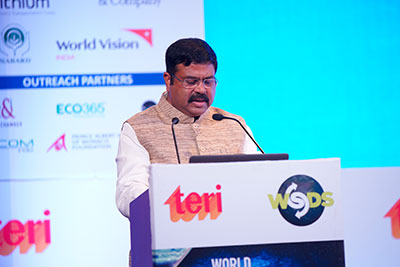
Cutting emissions in times of power cuts
This question, asked on stage during the World Sustainable Development Summit, sets the tone for the realities of India where we have to meet both the challenges of sustainable energy for cities and industries, and also shift millions of rural and poor households to clean energy, and keep them there.
Read more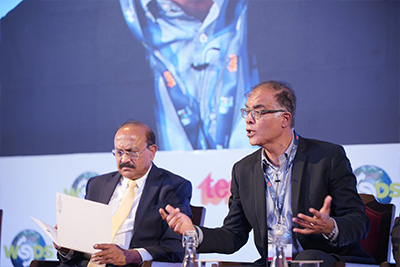
Six steps to make EVs a truly attractive option for India
Clean mobility today stands at the intersection of health, technology, energy, and policy and insight into what Indian mobility consumer wants. The World Sustainable Development Summit (WSDS) 2020 'Mobility Talks' Corporate Conclave brought together these diverse themes and how they can synergise to create a uniquely Indian mobility transformation.
Read more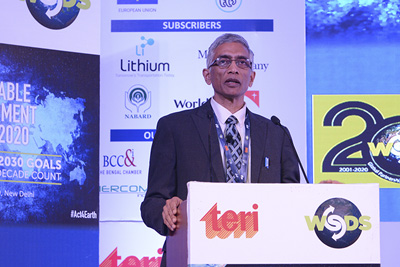
Lessons from Swachh Bharat Mission are crucial for the effective implementation of Jal Jeevan Mission
Political leadership, public finance for sanitation, partnership among stakeholders, and people’s participation are the 4Ps or key lessons from the Swachh Bharat Abhiyan to be replicated and adapted into the Jal Jeevan Mission,” said Mr Parameswaran Iyer, Secretary, Ministry of Drinking Water and Sanitation (MDWS), Government of India.
Read more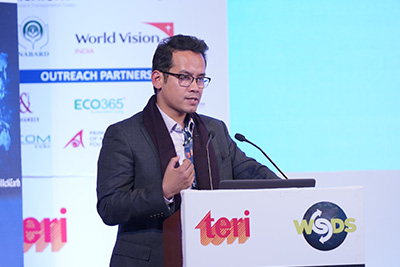
Multi-stakeholder cooperation is key to tackling air pollution
Stakeholders at the World Sustainable Development Summit (WSDS) 2020, organised by The Energy & Resources Institute, agreed upon a multi-ministerial and multi-stakeholder cooperation to tackle the issue on air pollution and to strengthen the National Clean Air Programme (NCAP) in India.
Read more
Can we put steel on a low-carb diet?
Reducing emissions to control global warming necessarily involves finding ways to decarbonise emission-intensive industry sectors like steel. What is the pathway towards it?
Read more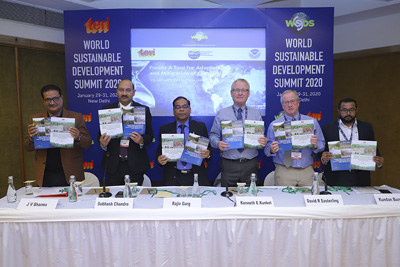
Long road ahead for achieving India’s forestry goals
Nearly 50 million people in India live around Protected Areas (PAs) such as tiger reserves and depend on forest resources for their day-to-day livelihood. These communities are often caught in the midst of human wildlife conflict, and are hit by significant economic losses resulting from either loss or injury to life, crop damage, and loss to livestock.
Read more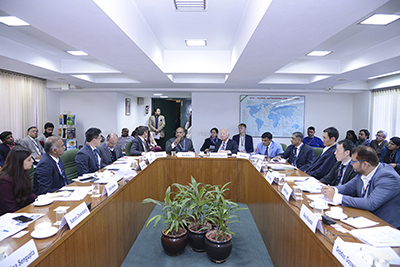
Manpower, Machine, Money will make SMEs more confident
Energy conservation in the Small and Medium Enterprises (SME) segment is essential for achieving India's Nationally Determined Contribution (NDC) under the Paris Agreement. Experts predict that by 2050, India’s carbon emissions will largely be from this sector.
Read more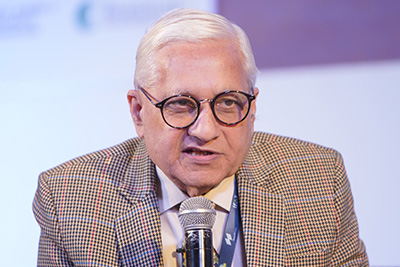
Waste no more, build a circular economy
India is constantly dealing with the challenge of balancing its economic growth and environmental sustainability. While it has begun the transitional process towards larger uptake of renewable energy and energy efficiency, several other challenges like waste management, among others remain to be resolved. A fast-developing country like India generates various kinds of urban and industrial waste.
Read more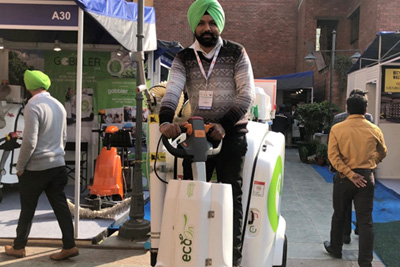
Rise of technologies: WSDS 2020 is a playground for innovative solutions
TERI’s World Sustainability Development Summit 2020 (WSDS 2020) exhibits the very best of these technologies at the first edition of IFAT-Delhi — North India’s trade fair for water, sewage, solid waste, and recycling —co-located with WSDS 2020 at the venue. These technologies are sustainable and eco-friendly.
Read more
National Clean Air Programme paving way for new partnerships
India’s National Clean Air Programme (NCAP) is one of the most significant steps taken by the pollution control authorities to tackle the failing air quality. NCAP is a time-bound, national strategy to bring down levels of deadly particle air pollution (PM2.5 and PM10) by 20-30% by 2024 (compared to 2017 levels).
Read more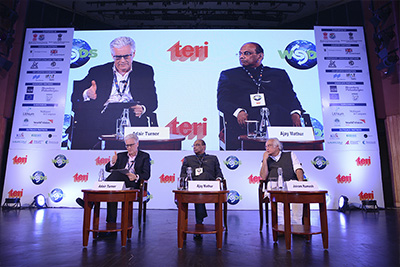
What can the last decade before 2030 bring about?
Can we achieve a zero-carbon emissions future? What would it look like and how do we get there? Lord Adair Turner, Chair, Energy Transitions Commission, and Jairam Ramesh, Member of Parliament and former Union Minister for Environment and Forests, discuss this at WSDS
Read more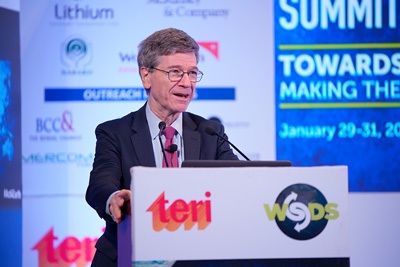
We MUST decarbonise world economy by 2050
The world is heating up in unprecedented ways. Terrifying typhoons, cycles of flooding and drought, forest fires scorching millions of hectares of land, rising water floods that wipe out entire cities are all par for the course - and we're doing nothing to stop this rapid escalation of climate change. This was the sustainability wake-up call delivered by Professor Jeffrey D. Sachs, University Professor and Director, Center for Sustainable Development, Columbia University, at the World Sustainable Development Summit 2020.
Read more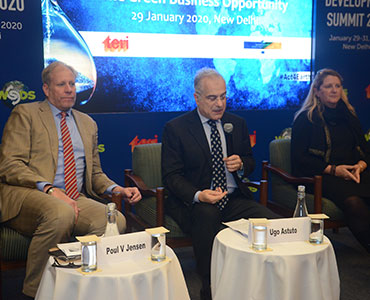
Green business models and cleantech solutions to drive India-EU business collaboration
To effectively establish a circular economy – reducing waste, recycling resources, efficiently using energy - can require unprecedented co-operation. Industry, sectors, even countries and regions will have to come together to share knowledge and learn from each other’s experiences.
Read more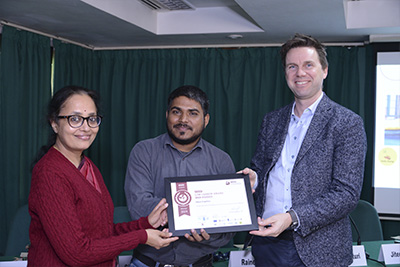
Incubators need to look at enterprises through the prism of sustainability and environmental impact
Nurturing eco-inclusive enterprises is pivotal to overcoming the current environmental and social challenges in developing nations such as India. Eco-inclusive enterprises are the emerging companies that work towards social and ecological change along with integrating green technologies and climate-smart business models. Against this backdrop, a thematic session - Entrepreneurial Solutions for the Challenges of Climate Change -- was organised by TERI at the World Sustainable Development Summit (WSDS 2020).
Read more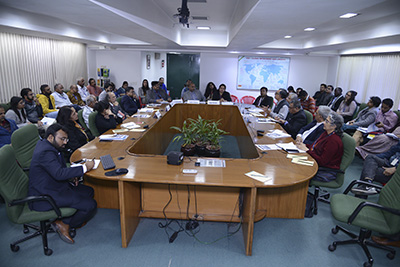
Water utilities need to adopt circular economy approach fully
Sustainable development and circular economy as concepts have emerged from a response to drawbacks of the conventional linear economy model of growth of “Take, Make, consume and dispose”. A thematic track on “Achieving SDG 6 Goals: The Need for Circular Economy Approaches” at the World Sustainable Development Summit 2020 discussed the need to have a conversation about focusing on circular economy principles. The round table discussed cases for the water sector for the transition to a circular economy.
Read more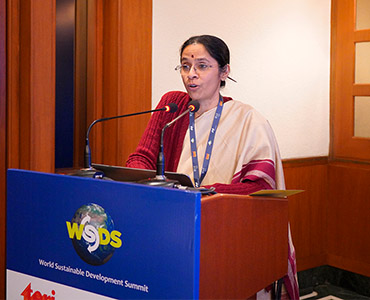
Consumers are aware and ready for change, now is the time for the right policies towards sustainable cooling
The aggregated nationwide cooling demand is projected to grow around 8 times by 2037-38 from the 2017-18 baseline. This makes sustainable cooling imperative. India is the first nation in the world to create an integrated action plan for cooling – the exhaustive India Cooling Action Plan (ICAP) -- and seeks to make cooling greener and more energy efficient.
Read more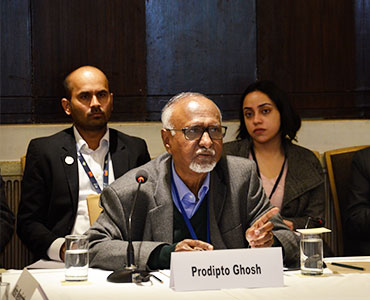
Action lies in the States
India's Nationally Determined Contributions (NDCs) under the Paris Agreement is an ambitious commitment to reduce emissions and important to limit global temperature rise. While the National Action Plan on Climate Change (NAPCC) and its missions have been guiding climate policies in the country, State governments are key stakeholders in driving climate action at the sub-national level.
Read moreTransparency: The beating heart of the Paris Agreement
While establishing Nationally Determined Contributions (NDCs), the Paris Agreement also put into place a more rigorous enhanced transparency framework (ETF) for climate action and support.
Read more
